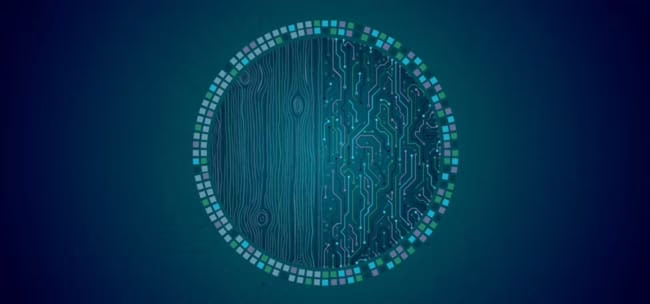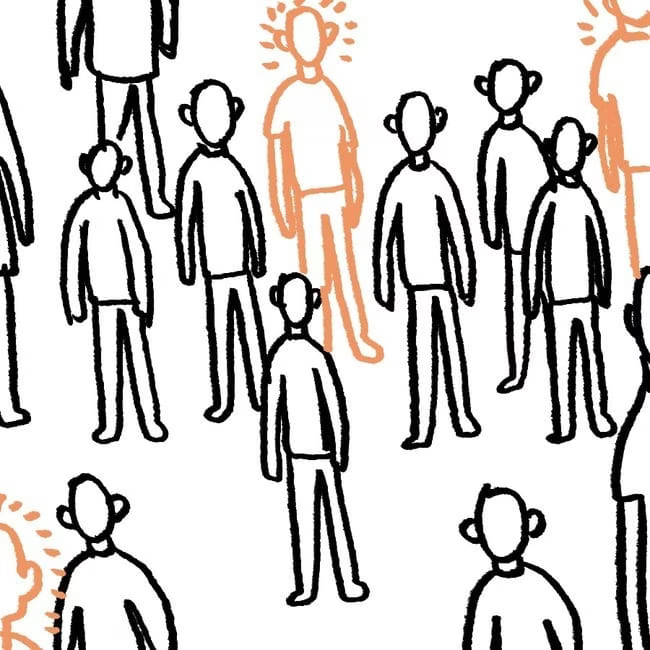Finding the Knobs Within Stochastic Determinism

Normally when I write I have a specific thought and I try to lay it out in a structured way.
This post, however, will be one of my stream of consciousness flows that I do every couple of years.
I just finished reading a book called Behave, and it—combined with a number of other reading and ideas—is having a strong effect on my thinking.
I’m struck by two (seemingly) conflicting thoughts:
We are so obviously moist robots, with no free will, and our inability to see this is purely a symptom of our scientific infancy, and…
We have no idea what we’re capable of, and genius and exceptional outcomes can spring from nearly anywhere at any time.
Behave
The book Behave by Robert Sapolsky makes an extremely persuasive argument that we are pure products of our genetics and environment. And he does it in an approachable, convincing, and—yes—positive way.
The book taught how little genes matter by themselves, and how much the environment is in play.
Perhaps my main takeaway was:
I’m paraphrasing here.
It’s useless to ask what a gene does by itself, because there is no such thing. You have to ask what it does in a specific context.
That is so empowering!
To me it says very clearly that you should try to tweak every possible variable in your favor, because there are thousands (or millions?) of switches constantly being flipped on and off within you, based on your environment.
And the environment means your health. Your food. Your exercise. Your stress levels. Etc.
To whatever degree we control anything.
Those are things we can actually control. We can choose to wake up early and exercise. We can choose to eat less. To eat more healthily. To exercise. To be mindful. To be grateful for the small things in life. To read more reading.
And as Sapolsky expertly demonstrates, all these things (especially combined) can make profound differences in how your genes are activated.

So you can have someone who is extremely lucky genetically, but who gets unlucky with their environment, or doesn’t choose to take care of themselves, and they can end up deeply unhealthy, unhappy, and unsuccessful because their talents never get activated or their (now fully active) negative traits overcome any positives.
Conversely, you can have someone who isn’t nearly as gifted—athletically, intellectually, whatever—and yet they eat well, study hard, maintain a positive attitude, get plenty of sleep and exercise, and all those things combine to make them one of the most productive people in the world.
That’s a spectacularly powerful and contradictory message.
You are nothing but your genes and your environment.
But your genes are significantly activated/controlled by your environment.
So do your best to maximize yourself by controlling your environment.
The separating classes
What this got me thinking about is the issue of dramatic class separation taking place right now. Piketty talked about it most clearly in his book, Capital in the 21st Century, which showed that it’s expected for the classes to separate until either war, disease, or famine bring them back together.
Yay. Something to look forward to.
Anyway, it got me thinking about the narratives that people use to explain these things, and how they only focus on one side of the truth.
Some, for example, think that life is all about good genetics and intelligence, and if you’re not born with those things then you’re destined for a life of squalor and unhappiness. And they’re likely to see everything through a Naturalistic Fallacy lens, where if it’s natural it must be good.
Others see the world as this formless mush of potential and success, and it’s just a matter of a few evil people at the top keeping everyone else down. Because everyone has equal potential to succeed at intellectual and athletic and professional tasks. We’re all the same, after all.
Difficult, but not impossible.
Both of these are horribly mistaken, and I think it’d be difficult to finish a charitable read of Sapolsky’s book and arrive at any other conclusion.
People are different. We have different talents. And many talents do come in significant part from our genetic makeup. But it’s not really a group message: it’s an individual message. And it’s a message tempered massively by the role of the environment.
We see people sitting in bad neighborhoods, hurting each other, elevating violence, disrespecting education, etc. And people think this is a genetics problem. Like, "those people" are just like that.
But what this book shows is how much anyone can be like that with similar stimuli.

It reminds me of Outliers, by Malcolm Gladwell.
He showed how if you happened to be born in a certain time of a certain month, you’re likely to be just old enough to be the oldest kid in a particular cohort being selected for a sport.
And since a kid like this was many, many weeks older than other kids, they had a slight size and strength advantage. A small one, but significant enough.
And because they had that advantage, they got noticed by coaches, which got them far better coaching, which in turn led to elite coaching in some cases.
So what you ended up with someone having a tiny luck advantage (they didn’t choose when they were born), which turned into them getting picked for an elite coaching camp that made them so good they’re going to play professionally.
Looking back, people will say, "Oh, he was just that good, and the coaches all saw it."
The reality is often different though, and Gladwell showed that a disproportionate percentage of the kids who made it to the elite level were born in that magical time window that made them slightly bigger than other kids.
The world is that selection process
What so many fail to understand is that our whole world works like this, constantly, everywhere, for everyone.
First you get lucky or unlucky in the genetic lottery. Then you get lucky or unlucky in where you were born. What parents you had, whether they were stable and loving and educated and affluent, or some combination of the opposite.
Those factors make up the vast majority of outcomes. Truly.
There are, of course, many exceptions to this, where people have every advantage and end up being nothing. Or people are supposedly dull, and come from a horrible background, but they go on to be a master inventor millionaire and saver of the world.
All of these models are true simultaneously, and it’s critical that we understand that.
Stochastic Determinism

I’m reading a book about Claude Shannon’s life and work, and was just reminded of Stochastic processes, where you have short-term randomness but long-term predictability. Or as some put it:
Statistically predictable, but individually unpredictable.
My favorite analog and visual for this is a really drunk person staggering home. If you were to try to predict the way in which they would dip and catch on their next few steps, it’d be near impossible.
But assuming they were not too drunk to walk (and perhaps had some practice), they’re moving along a very predictable path back to their house.
I think this is a really powerful way of thinking about humans and the forces that push them towards greatness, misery, success, and suffering.
We cannot know how poverty will affect a child, but we know how it affects children.
And being financially stable doesn’t mean you’ll be happy.
Having two parents with Masters degrees doesn’t guarantee a given person will be financially stable, but if you look at 10,000 people it probably comes pretty damn close.
Same for childhood hunger, or genius, or good role models, or any number of things.

That’s really the point: there are a massive number of factors that we know to be beneficial to the growth of an individual or a society, and there’s a similar list of the things we know are harmful.
All we can do is turn the knobs.
That’s our mission in life, actually. It cannot be stated more plainly than that.
Our job is to find those variables, attach knobs to them, and turn them to the best possible settings for the largest number of people.
The Absurdist angle
There’s one more dimension here that I want to add, and that is Absurdism.
My definition of this is essentially:
The tension between the truth and what we must pretend were true in order to continue.
I talk about this a lot with regard to Free Will >, where I say the way to unify Compatibilist and Incompatibilist thinking is to accept our limitations as humans trying to live daily lives.
The situation is very much the same as someone who studies evolutionary biology, and economics, and sociology, and political science, etc.
I, for example, know that it generally requires a certain pedigree to become part of the intellectual community I admire. People who make it there usually have Ph.D’s, and have parents who both have degrees. Etc.
I don’t have those things. But I also know that the world is different than it was 25 years ago, and 25 seconds ago.
And I also have a whole host of other advantages that could easily help me penetrate particular areas if luck and preparation happen to make friends at some point.
So I grind. Constantly. I always have. Since my 20’s. I’ve been writing in this way since 1996, and I sort of did it long before that.
I know my chances of becoming a Paul Krugman or David Brooks or Sam Harris—in terms of exposure—are severely limited by my background and other factors that were determined for me.

But I don’t care. Because I don’t know the future, and neither does anyone else. And many things far less possible happen all the time.
To be clear, the process is most of the fun anyway, but I do stochastically pursue some goals as well.
So I grind.
Now imagine this same thing multiplied by a million for someone not white, not in one of the world’ds top cities, and without really smart parents. Not super lucky, in other words.
So what I’m saying is that we should simultaneously acknowledge limitations and reject them, just as Camus did with ultimate meaning for the universe.
All we can do is turn the knobs of education, networking, grinding, diet, exercise, reading, etc., and then believe—in some part of you, sometimes—that those knobs are what will make the difference.
That’s what we need to do as individuals, and it’s also what we need to do as a society.
We have to find and enumerate the very real disadvantages that people have, find the variables we need to improve, and simultaneously broadcast at full volume that anyone can achieve anything.
This is my mission in life.
Model the world.
Find the knobs.
Set them to the best possible settings.
Pursue individual and societal excellence with optimistic abandon.